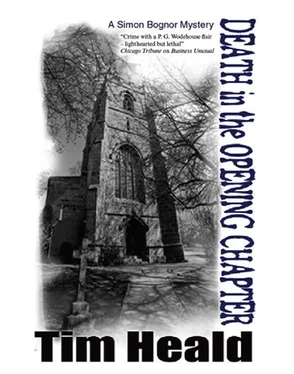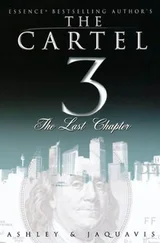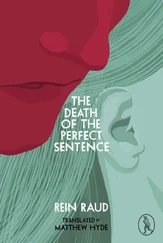Tim Heald - Death in the opening chapter
Здесь есть возможность читать онлайн «Tim Heald - Death in the opening chapter» весь текст электронной книги совершенно бесплатно (целиком полную версию без сокращений). В некоторых случаях можно слушать аудио, скачать через торрент в формате fb2 и присутствует краткое содержание. Жанр: Криминальный детектив, на английском языке. Описание произведения, (предисловие) а так же отзывы посетителей доступны на портале библиотеки ЛибКат.
- Название:Death in the opening chapter
- Автор:
- Жанр:
- Год:неизвестен
- ISBN:нет данных
- Рейтинг книги:5 / 5. Голосов: 1
-
Избранное:Добавить в избранное
- Отзывы:
-
Ваша оценка:
- 100
- 1
- 2
- 3
- 4
- 5
Death in the opening chapter: краткое содержание, описание и аннотация
Предлагаем к чтению аннотацию, описание, краткое содержание или предисловие (зависит от того, что написал сам автор книги «Death in the opening chapter»). Если вы не нашли необходимую информацию о книге — напишите в комментариях, мы постараемся отыскать её.
Death in the opening chapter — читать онлайн бесплатно полную книгу (весь текст) целиком
Ниже представлен текст книги, разбитый по страницам. Система сохранения места последней прочитанной страницы, позволяет с удобством читать онлайн бесплатно книгу «Death in the opening chapter», без необходимости каждый раз заново искать на чём Вы остановились. Поставьте закладку, и сможете в любой момент перейти на страницу, на которой закончили чтение.
Интервал:
Закладка:
‘Then he can’t have been drawing on real life,’ said Bognor. ‘Allgood’s never had a rejection in his life. That’s part of his problem.’
‘Just because he personally hasn’t been turned down,’ said Sir Branwell, ‘doesn’t mean to say that he doesn’t know people who have.’ He sounded triumphant, like a truculent undergraduate confronted by a particularly dim examiner. ‘Don’t tell me little Allgood doesn’t know all about slush piles and unsolicited manuscripts. Just because it hasn’t happened to him.’
‘I’m sorry,’ said Bognor, aware that he was sounding petulant, ‘but nobody has told me what he actually said. All I know is that you all agree that it was good. Branwell said it was based on fact; Monica says it wasn’t. But what exactly was it?’
‘He said,’ said Camilla, ‘that rejection was enough to drive someone to drink. Or suicide. Or worse.’
‘What could be worse than suicide?’ he asked. ‘I mean, that’s as bad as it gets.’
‘Killing someone else is worse than killing oneself. At least, it is in fiction. It may be different in real life, but Allgood is about novels. It’s what he does.’ This was Camilla again. The other two glowered and said nothing.
‘So where did the vicar come in?’
‘Allgood brought him in,’ said Camilla.
‘He didn’t have to,’ said Branwell. ‘I’m afraid Sebastian brought himself in. Evidently, he had written a novel and he couldn’t take the constant rejection. Being Sebastian, he went about it all in completely the wrong way and naturally failed to see it, which is why he strung himself up. So, ergo, I was right all the time. He strung himself up. Admittedly, I failed to guess the reason for his topping himself, but I’m afraid that’s not the point. He was responsible and he alone. All jolly sad. But no need for any more fuss than deep regret and a proper funeral. New padre needed, but that’s another matter. Allgood hit the nail on the head, I’m afraid.’
‘With respect,’ said Monica, ‘that’s not what he said. Everything was prefixed with doubt and speculation. He kept saying “if?” and “let us suppose”. He may have been putting a prosecution case, but that’s all. He certainly wasn’t putting forward facts. There was absolutely nothing he said which would stand up in court.’
‘But had the vicar written a book?’ asked Bognor.
‘Yes,’ said Sir Branwell.
‘No,’ said Bognor’s wife.
‘We can’t be sure,’ said Camilla.
‘One speech,’ said Bognor, ‘an audience of three and three completely different interpretations. I’m afraid that, in my experience, that’s entirely usual. It doesn’t matter how many witnesses you have. It doesn’t matter if each one has qualifications to pass themselves off as a trained observer, you are likely to have three completely different versions of what actually happened. That’s one reason truth is so difficult to ascertain. Basically, there’s no such thing. One man’s fact, is another man’s fiction; one man’s truths are another man’s lies. And so it goes on. That’s why there is no such thing as real history, why it’s possible to have a Marxist interpretation and a Christian one, why it is possible to be Arthur Bryant and tell our island history entirely in terms of kings and queens, or be Christopher Hill and tell the same story as if the only real people involved were diggers and levellers. There is no such thing as objectivity. Never was, never will be. Fact of life.’
‘That’s what they taught you at Apocrypha?’ asked Monica, not really expecting a straight answer and not receiving one.
‘Maybe, maybe not,’ said her husband. ‘Case rests.’
‘I don’t see that what we were taught at university makes a blind bit of difference,’ said Sir Branwell. ‘The fact of the matter is that the vicar wrote a novel, had it turned down by a number of publishers, and killed himself as a result. Little Allgood says it happens all the time.’
‘Just because it happens all the time,’ said Bognor, ‘doesn’t mean it happened here. What was the vicar supposed to have written?’
‘Doesn’t make a blind bit of difference,’ said Branwell. ‘Could have been Shakespeare, Dickens, Hardy and Jane Austen rolled in one, for all the industry cared, and for all the difference it made to the poor fellow’s disillusion and suicide. He went about it completely the wrong way: didn’t have an agent, probably submitted a photograph of himself in a dog collar, which said middle-class, middle-aged, Caucasian male failure. Wouldn’t be surprised to find he sent a picture of himself with a beard. I’m not a celebrity get me out of here. Except that, he was never even in it. Wherever “it” is.’
‘What if the book was any good?’ asked Bognor innocently.
‘You don’t suppose anyone actually read it?’ Sir Branwell was incredulous. ‘Never had a lot of time for little Allgood, but he talked a lot of sense today. The vicar’s book would have gone straight into the slush pile and stayed there until someone sent him a rejection slip. No one would have read it. They don’t read books nowadays. Probably can’t. That’s what Allgood said. You can learn a thing or two at a good literary festival like ours. Beats reading any day.’
‘Everything seems to beat reading these days,’ said Monica. She was obviously spoiling for a fight. ‘Including so-called literary festivals. You’ve heard the author plugging his latest book, so you don’t have to bother reading it. Dead vicar at end of rope in own church; don’t read all about it; just listen to Martin Allgood being speculative. Honestly.’ She was very angry.
‘I don’t see the problem,’ said Bognor. ‘We only have to ask Dorcas if Sebastian had written a novel. Either way, I don’t see rejection as a motive. Thousands of people have books rejected.’
‘Most of them unread,’ said Sir Branwell with an air of triumph.
‘What if Sebastian had written a good book?’ Bognor was being faux naif, but it was a perfectly legitimate question. It was unlikely that the vicar had written a good book, whatever that might be, and the semi-plagiarism of the title was a bad augury. Nevertheless, the idea was possible, and Bognor was not a man to leave a stone unturned. If he did, it might gather moss, he told his long-suffering subordinates whenever the opportunity arose.
Sir Branwell was exultant. ‘In the unlikely event that little Sebastian had written a good book, it would have been even less likely to find a publisher.’
Even Bognor found this a little over the top, but the squire was now in full flight.
‘Sebby being Sebby would have sent the manuscript off with all conceivable strings left unpulled. His typescript would therefore have gone straight on to the slush pile. There it would have remained for the requisite number of months, before the book would have been returned in the stamped addressed envelope so thoughtfully provided. Without an sae, it would just have been thrown out. Just possible it would have been picked up by some typist, who might have taken it home to read, might conceivably have enjoyed it, might possibly have put in a recommendation to that effect. If she did, which would be very unlikely, her bosses would have ignored it. They always do. It’s in the job description.’
‘There’s no such thing as a typist these days,’ said Monica, still combative. ‘They all have laptops, even the super bosses, even if they don’t know how to use them.’
Sir Branwell ignored her.
‘Had Sebastian been a celebrity of some description – a cook, say, or a supermodel – he might have stood a chance. But he was a common-or-garden middle-aged man with a dog collar, and more hair on his chin than the top of his head.’
Читать дальшеИнтервал:
Закладка:
Похожие книги на «Death in the opening chapter»
Представляем Вашему вниманию похожие книги на «Death in the opening chapter» списком для выбора. Мы отобрали схожую по названию и смыслу литературу в надежде предоставить читателям больше вариантов отыскать новые, интересные, ещё непрочитанные произведения.
Обсуждение, отзывы о книге «Death in the opening chapter» и просто собственные мнения читателей. Оставьте ваши комментарии, напишите, что Вы думаете о произведении, его смысле или главных героях. Укажите что конкретно понравилось, а что нет, и почему Вы так считаете.












